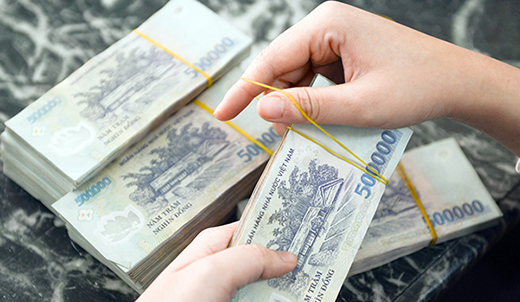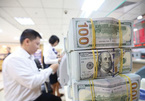 |
A recent survey revealed at least 60 – 70 Chinese peer to peer lending (P2P) companies have fled to Vietnam, following the collapse of such model in China, according to Nguyen Hoa Binh, chairman of NextTech.
The figure is much higher than the number previously provided by the State Bank of Vietnam which indicated that 40 P2P lenders are operating in Vietnam, including 10 from China, and others from Indonesia and Singapore.
Binh said the P2P lending platform in China reached its peak with 4,000 enterprises, but later collapsed and caused serious consequences to the society, citing the lack of regulatory framework as one of the main reasons.
According to Binh, the P2P model, under which lenders and borrowers connect via apps, has been exploited by platform providers for raising money from depositors before lending back to corporate borrowers for high returns.
However, as the Chinese government moved in to tighten credit environment, borrowers failed to raise money and were unable to generate sufficient cash flows to repay lenders, Binh said.
Binh added a large number of Chinese P2P companies in Vietnam have created unfair competition and caused confusion among customers as some recruited Vietnamese as representatives.
Additionally, customers are being charged with extortionate interest rates of 60 – 70% per month.
Binh stated Chinese companies could potentially disrupt Vietnamese market and suffer the same fate as in China, adding that this lending practice requires timely management from state agencies for transparent and fair competition between companies.
Deputy Director of the Monetary Policy Department under the SBV Nguyen Chi Quang said in March if P2P lending is well managed, it would facilitate inclusive finance, especially in remote areas where the banking sector remains undeveloped and customers, household businesses, and small and medium enterprises have limited accessibility to banking – finance services with low costs.
Deputy Prime Minister Vuong Dinh Hue said the government will soon issue a legal framework covering P2P activities, aiming to prevent violations in this new business model.
A research conducted by Transparency Market Research showed that P2P lending would grow by 48.2% annually in the 2016 – 2024 period, while Morgan Stanley forecast the business model is expected to reach growth rate of 53.5% globally by 2020. Hanoitimes
Hai Yen

Chinese goods mixed with Vietnamese, sold as Vietnamese-made
Asanzo has been denounced for importing Chinese goods and selling the goods as Vietnamese. But Asanzo is not alone.

How will the US-China trade war affect Vietnam’s financial market?
Vietnam has devuded not to devalue the dong in order to gain advantages in export.
 A large number of Chinese P2P companies in Vietnam have created unfair competition and caused confusion among customers, as some recruited Vietnamese as representatives." itemprop="description" />
A large number of Chinese P2P companies in Vietnam have created unfair competition and caused confusion among customers, as some recruited Vietnamese as representatives." itemprop="description" />